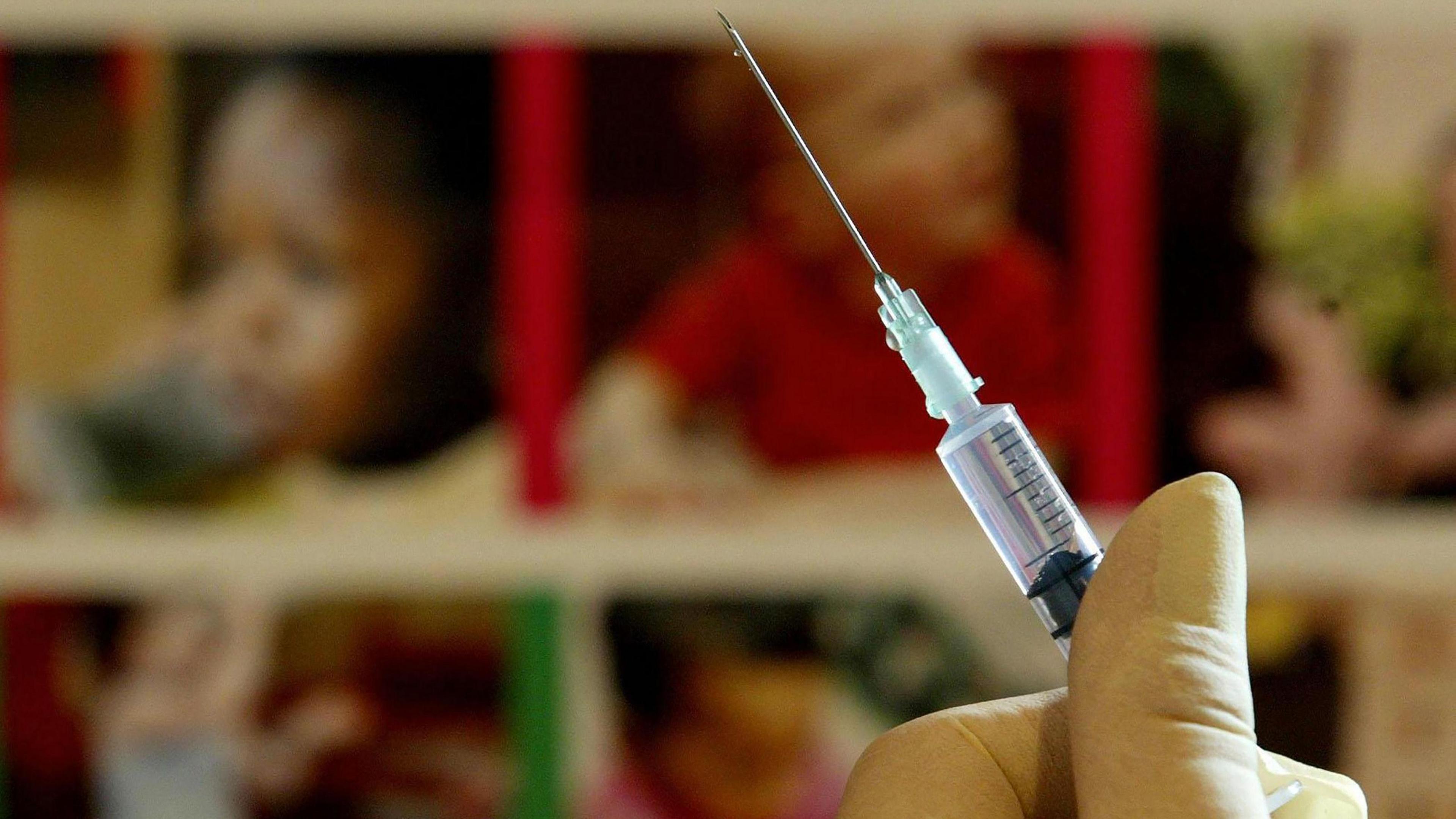'Whooping cough has been relentless - we haven't slept for weeks'
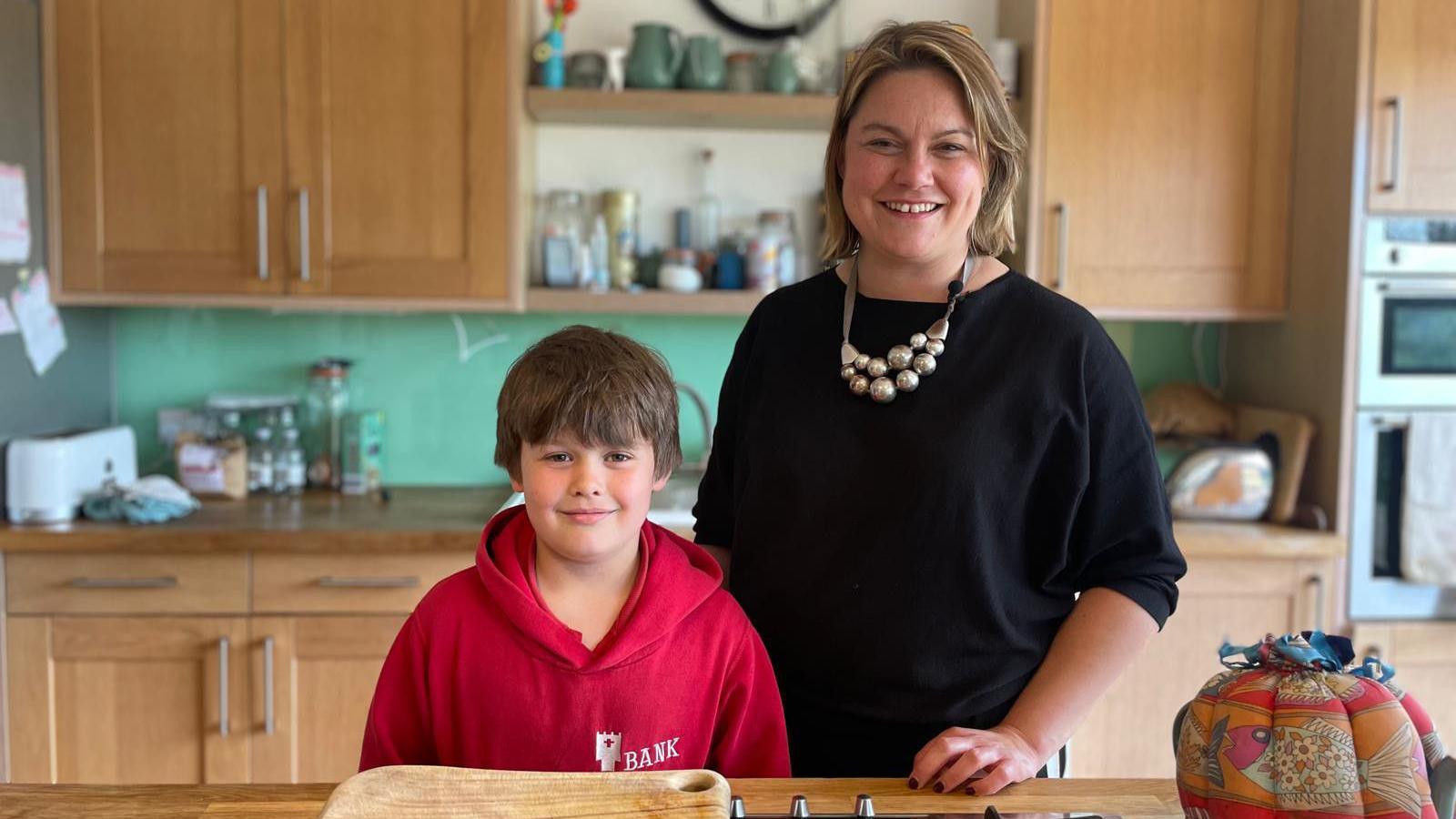
Jayne Saywell and her son Peter have been trying to recover from the infection
- Published
A mum who has spent two months dealing with whooping cough in her family has described it as “relentless and exhausting”.
Jayne Saywell, from Portobello in Edinburgh, was scared when her 16-year-old son Tom started having coughing fits in April and it soon spread to herself and her youngest son Peter.
“The lack of sleep is the worst because you’re waking up coughing again and again and again,” Jayne said.
“It’s relentless and you’re exhausted.
“I thought it was from medieval times, I thought it had been eradicated, I didn’t think it was a thing anymore at all. It was a bit of a shock.”
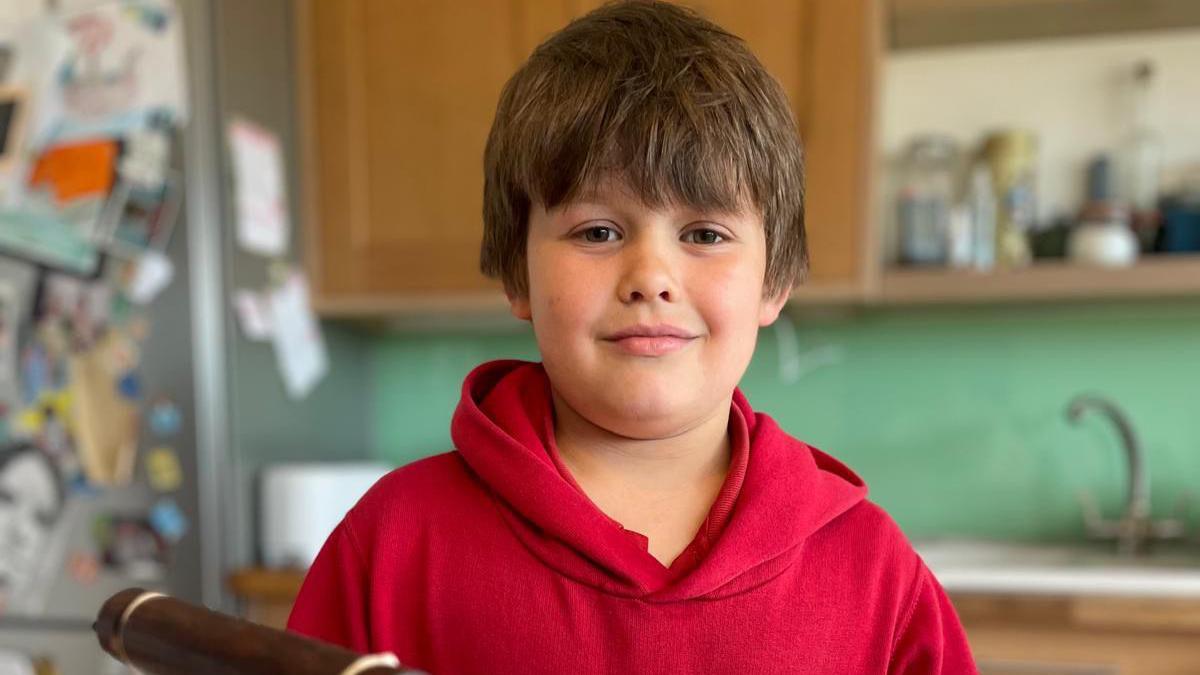
Pete, nine, was the youngest member of the family to catch the cough
The latest figures from Public Health Scotland (PHS), external show more than 2,800 cases of whooping cough have been recorded in Scotland so far this year.
Analysis of the first three months of the year showed that most cases have been in the 10-14 age group.
The NHS Greater Glasgow and Clyde, Lothian and Grampian health board regions had the largest number of confirmed cases in the first quarter of 2024.
Also known as pertussis or the "100-day cough", experts say the infection is a cyclical disease with peaks seen every three to five years.
Just 73 cases were reported in Scotland in 2023.
The last significant outbreak saw 3,084 cases detected over a two-year period in 2012 and 2013.
And cases have been rising recently across the UK and Europe.
The UK Health Security Agency said a steady decline in uptake of the vaccine and the very low number of infections seen during the Covid pandemic were both factors in the recent rise in cases.
Jayne and her family had previously been vaccinated against the cough. The infection started in April during the Easter school holidays and has since been treated with antibiotics. But some symptoms are persisting.
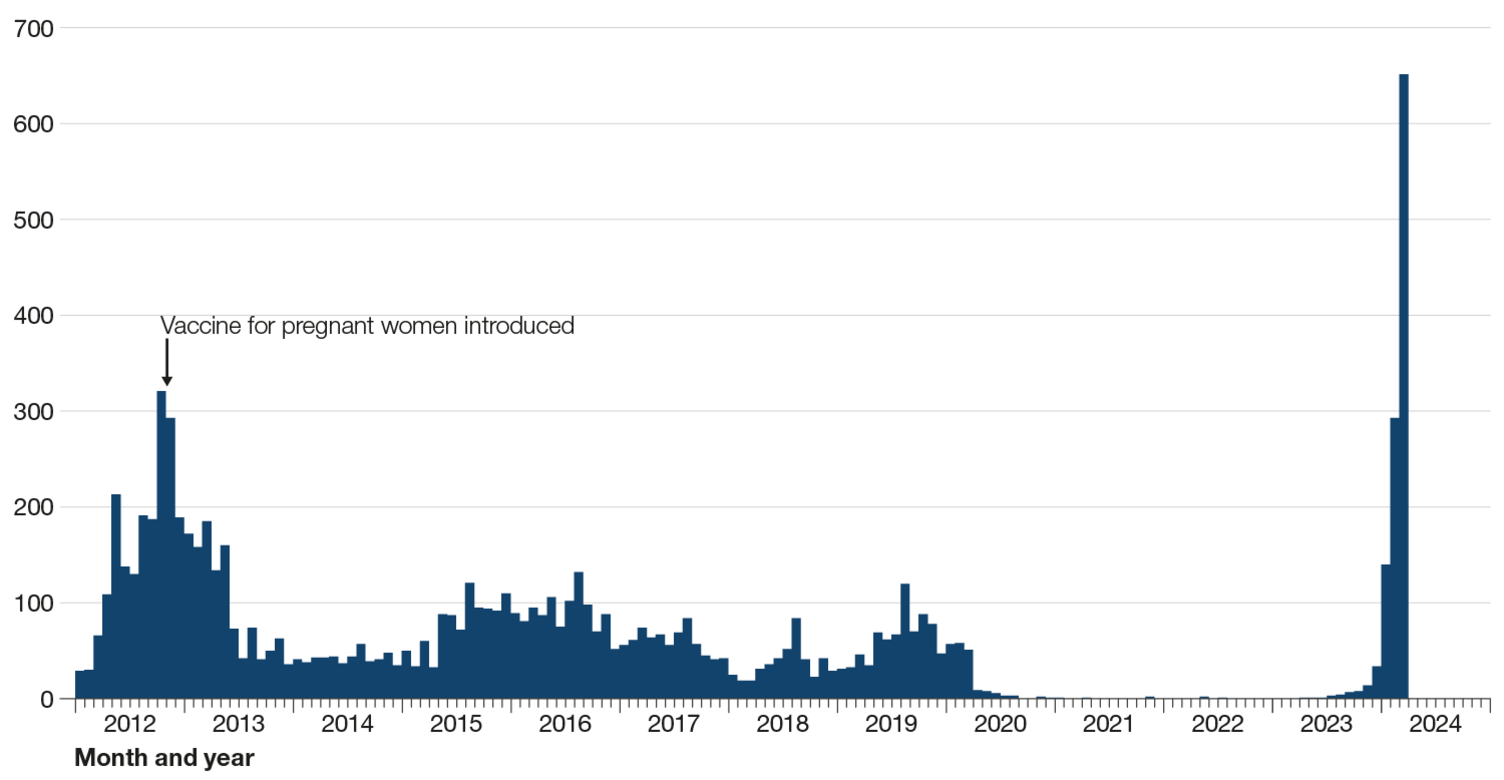
A Public Health Scotland graph showing the number of laboratory reports of whooping cough in Scotland by month from 2012 to March 2024
When nine-year-old Peter started coughing he was tested for the infection, but the rest of the family were not because it was presumed they had it. This suggests the true number of cases across the country is likely to be higher.
Jayne said: "Go to the GP if you are coughing and you can’t stop coughing, don’t wait for the ‘whoop’ noise.
"That did manifest in my older son but it didn’t in us, so it took a while to realise what it was."
Peter said he wasn’t able get out with friends or do any activities for weeks.
"I was just sitting down all the time, I couldn’t really do anything," he said.
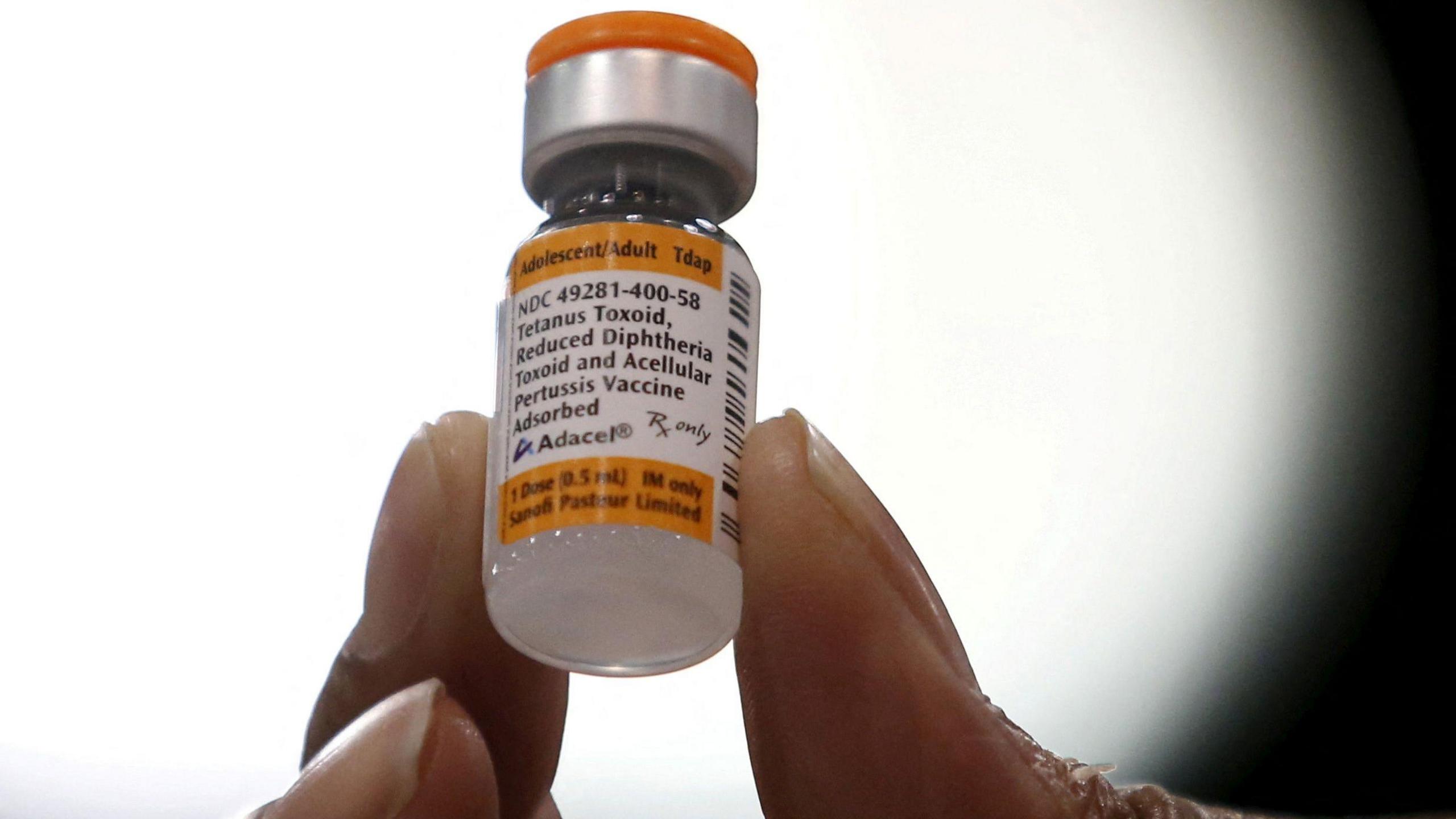
It is believed a steady decline in the uptake of the vaccine and the very low number of infections during the Covid pandemic have been factors in the recent rise in cases
Dr Sam Ghebrehewet, head of immunisation and vaccination at PHS, said infections would probably not peak until the autumn.
Speaking to BBC Scotland News last month, he said: "It is likely to get worse.
"The cycles we have seen over the last 10 years is usually that it starts in the first (quarter of) the calendar year - January, February, March.
"It goes higher and higher and it doesn't peak until the third quarter, so I think it has a long way to go as far as we understand from the previous years.”
What is whooping cough?
The first signs are similar to a cold, with a runny nose and sore throat.
After about a week, the infection can develop into coughing bouts that last a few minutes and are typically worse at night.
Young babies may make a distinctive "whoop" or have difficulty breathing after a bout of coughing.
The bacterial infection spreads through coughs and sneezes.
People of all ages can catch whooping cough, but it is most serious for young children and babies.
Five babies have died from whooping cough in England since the start of the year, according to the UK Health Security Agency. The last whooping cough death recorded in Scotland was in 2015.
PHS is encouraging pregnant women to ensure they are immunised against infection.
New babies cannot be immunised until they are at least eight weeks old.
Dr Ghebrehewet said: "Whooping cough is spread by respiratory droplets, either directly between people or through contaminated items. It can cause severe illness and death, particularly in young unimmunised children. Babies under one year of age are most at risk.
"Whooping cough can be prevented with immunisation which is given to infants, younger children and pregnant women.
Getting immunised during pregnancy is the best way to protect your baby in the first few vulnerable weeks of their life."
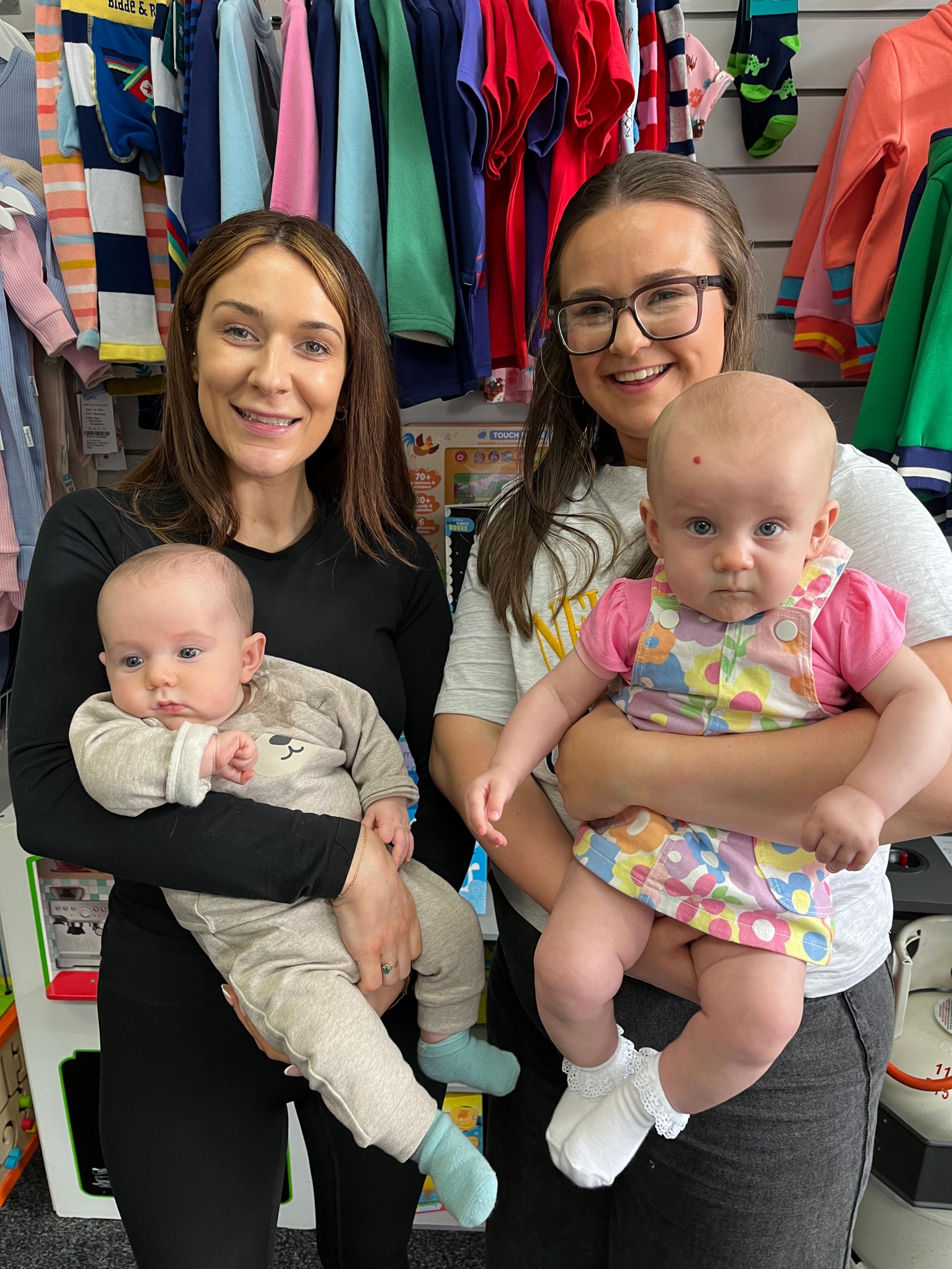
Molly Mulhearn and Holly McPhee were both vaccinated against whooping cough during pregnancy
Between baby sensory classes at the Toddle In on the southside of Glasgow, new mums discuss the challenges of parenthood, including health issues affecting their children.
Molly Mulhearn and Holly McPhee were both vaccinated against whooping cough during pregnancy.
Holly said she wanted to give her son Patrick as much protection as possible.
"You want to protect yourself and you want to protect the baby you’re carrying at the same time," she said.
"Then when they’re in the world you want to give them as much protection as possible."
Both mums believe it is important for parents to be told about infection risks with newborns and the availability of vaccinations.
Molly said: "It can be overwhelming - your first child - so having as much information and time to process it makes such a difference.
"I think it’s lovely to come to classes with other mums and be able to talk to somebody that completely understands what you’re going through.
"It’s really beneficial for baby and for me."
Related topics
- Published10 May 2024
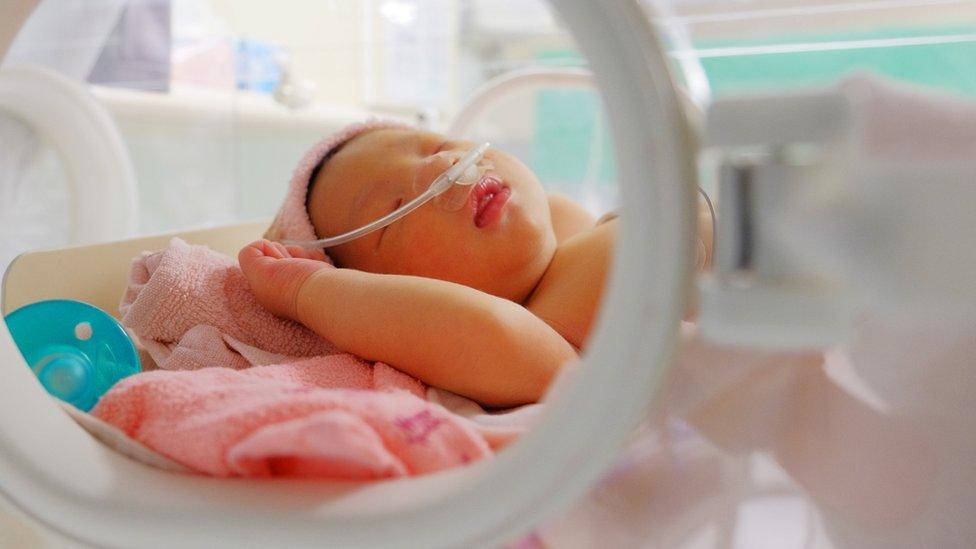
- Published27 May 2024
